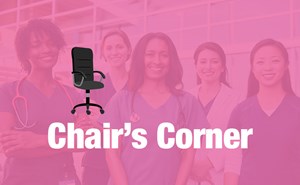
Retirement, Really?! How and When to Exit EM
In many ways, it seems like yesterday that I started out a career in emergency medicine, while other times I can feel every one of my 33 years of practice. Most of all, I feel incredibly fortunate. I have worked in both academic and community settings and touched many lives, hopefully for the better. I was privileged to share knowledge and experiences with new generations of physicians. I genuinely still love teaching and taking care of patients. I feel joy and fulfillment in this work, and I look back on my career with satisfaction. I’d like to think I have made an impact and taught others how to not only do, but also enjoy, emergency medicine. I think it’s clear that my passion for what we do is still very much intact. I want to exit while I still feel that passion, and while I am still providing exceptional medical care.
How do I “pull the plug?” How much will I miss it? What do I do after? These are all good questions requiring independent soul-searching and individualized decisions. Being a baby boomer makes this transition even more difficult. My generation was taught that work came first and to give it all your effort. As children of parents who lived through the depression, we grew up with the knowledge that you were lucky to have a job at all and to always work hard to stay financially secure. Generationally, work is hard-wired in our psyches, often at the expense of all else. I’ll be the first to say this is not healthy, but it is so well-ingrained that it’s hard to keep perspective. I had a close friend and colleague who recently confided that he was stepping down as a long-time chair. He didn’t know what he was going to do, noting, “I really don’t have anything else but this.” His statement is extremely sad and disheartening. Imagine facing the end your professional career with no direction or way forward to bring joy to the remainder of your life. It has to be one of the scariest things anyone could face! This is exactly why we look for well-rounded resident applicants and encourage them throughout training to take time for their families and hobbies: so balance stays in place throughout a career.
Approaching the end of one’s professional practice is a time for introspection and to take stock of where you’ve been and what you want to do with the rest of your life. No one can tell you what’s right; only you can determine what will come next to satisfy and bring you joy. I urge you to give this thought throughout your career. Make that bucket list and create a road for retirement that will satisfy your desires. Like most physicians, I have put off doing a lot of things I wanted to do to train and subsequently practice. Now It is time to step back, enjoy family, and pursue interests I never lost but didn’t find time to pursue when working. I am looking forward to it with anticipation, but also with a measure of trepidation. Will I miss practice? Will I get bored? Will I have regrets? Cutting through all these swirling thoughts and doubts is the lesson I always taught new residents in my wellness lecture as they embarked on their careers: remember that medicine is a vocation and not who you are as a person. Keep perspective and don’t let it consume you to the point where there is nothing else in your life. Thankfully, I have managed to keep that perspective throughout my career. Now, it is easier to close the book on this chapter of life with eager anticipation of what remains ahead.
Sometimes I think this transition is harder for women, as we are natural caregivers. Honestly, have you ever thought is it wrong to take time for yourself? Do you feel a bit guilty doing so? Don’t! Leaving practice just gives more time to do other things you care about and contribute in a different way—to your family, friends, and society in general—with experiences you have accumulated over a lifetime of practice. You owe yourself and those you love this “me time” to enjoy life unfettered. Here’s an important piece of advice: to be able to exit when you are ready, begin financial planning and saving for retirement early in your career. Steady savings will result in freedom to exit with financial security at a time of your choosing and allow you to live comfortably. You are never too young to start thinking about this, even while buying a new home, paying off loans, raising children, paying for college educations, and meeting the other financial needs of life. As hard as that might be, I encourage you to do it. You’ll be thankful as you approach your late 50s and 60s and can afford financially to retire when you want to do so.
One other issue seems to be occurring around retirement age. Talking with other colleagues, it seems we have all have experienced some degree of ageism or a negative attitude toward older workers. Most seemed to experience it starting around age 50. Why does this happen? Certainly, I don’t have all the answers, but our society in general tends to focus on youth. Many groups allow partners to “age out” of night shifts at 50, which can create ill will with younger group members who may feel older members are not carrying their weight. It does not seem to matter how many extra shifts or administrative duties they pick up, the sentiment is still there. Older physicians experience limitations in job assignments, training, and advancement opportunities they never encountered at a younger age. It is also more difficult to find new job opportunities, as prospective employers feel they will get less years of practice out of older applicants, or these applicants have a higher chance of developing health issues. Also, as salaries often go up with years of service, older physicians can cost more to employers and groups.
Of course there are laws against such discrimination, the Age Discrimination Employment Act (ADEA) was passed in 1967, but quite frankly, I don’t know that any physician that has ever invoked it. It’s hard enough to admit its occurring, although many older physicians, including myself, have felt it. You haven’t changed, but overnight it seems you are passed over and ignored when previously you would have been sought out for assignments and advice. Some institutions have actually made strategic decisions to “help” folks nearing retirement leave early, saving significant monies in salaries and benefits. Experiencing this could make one angry and even bitter. However, I believe it actually is a blessing in disguise. It helps you disconnect, makes the decision to retire easier, and promotes looking outside of medicine for your future. If you look at it with the understanding that this is just the natural evolution of life cycles, it can help you leave with grace, untainted by any feelings of being pushed out.
So, my friends, after years of planning and recent thoughtful introspection, it is my time to exit and jump optimistically into the future looking toward new challenges, personal growth, and fulfillment outside of emergency medicine. I am not looking back, but onward. I am truly energized by it, and wish the same for you when it is your time to join me at the next stage of our journey.
By Debra Perina, MD, FACEP




